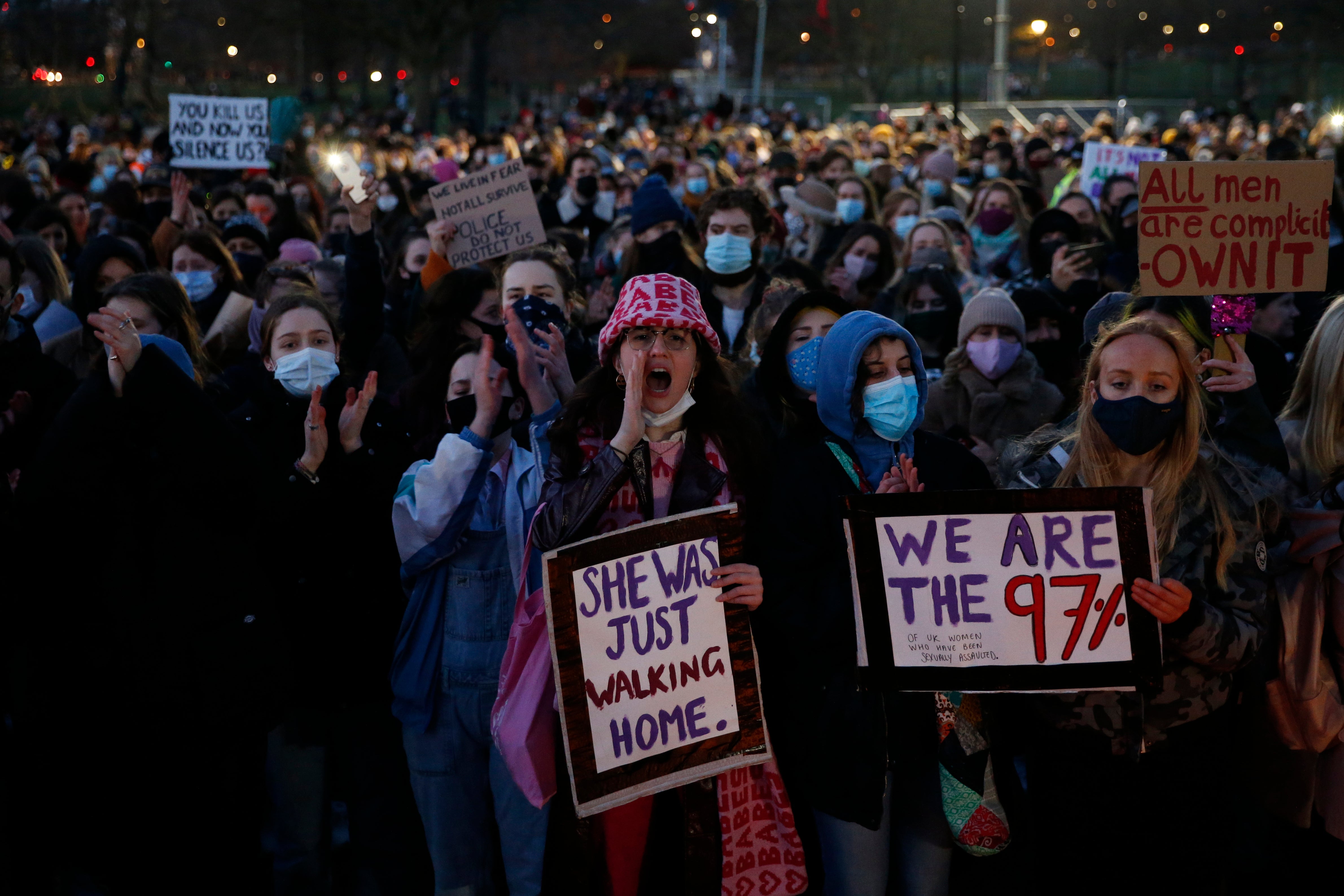Misogyny should not be made a hate crime, official review finds
Campaigners say women are being let down by criminal justice system because they ‘do not fit their tick boxes’

Your support helps us to tell the story
From reproductive rights to climate change to Big Tech, The Independent is on the ground when the story is developing. Whether it's investigating the financials of Elon Musk's pro-Trump PAC or producing our latest documentary, 'The A Word', which shines a light on the American women fighting for reproductive rights, we know how important it is to parse out the facts from the messaging.
At such a critical moment in US history, we need reporters on the ground. Your donation allows us to keep sending journalists to speak to both sides of the story.
The Independent is trusted by Americans across the entire political spectrum. And unlike many other quality news outlets, we choose not to lock Americans out of our reporting and analysis with paywalls. We believe quality journalism should be available to everyone, paid for by those who can afford it.
Your support makes all the difference.An official review has stopped short of calling for misogyny to be made a hate crime, despite mounting calls for change following the murder of Sarah Everard.
The Law Commission said sex or gender should not be made a “protected characteristic” that can be used to record incidents and increase sentences alongside race, religion and other factors.
Following a review commissioned by the government in 2018, the independent body said the move would be “ineffective at protecting women and girls and in some cases, counterproductive”.
A report published on Tuesday found the change could create “hierarchies of victims” and make rape and domestic abuse prosecutions more difficult.
The position is at odds with senior police officers who publicly backed making misogyny a hate crime last month, amid calls to tackle “epidemic” levels of violence against women and girls.
The national police lead for hate crime, Mark Hamilton, said he personally supported adding sex or gender to the current list of protected characteristics.
In November, he told a conference in London it would not cause officers to be “inundated with bureaucracy” and added: “I think it’s a good way of understanding offender behaviour and preventing things escalating from the more minor offences up to sexually-motivated crime and murder.”
At least 11 police forces in the UK are already recording misogyny as a hate crime, based on their own definitions, with Nottinghamshire Police becoming the first in 2016.
The Law Commission instead recommended of extending the offence of stirring up hatred to sex and gender, saying it would help tackle the growing threat of “incel” ideology.
But the report admitted that the offence, currently only covering hatred in respect of race, religion and sexual orientation, is rarely prosecuted and results in under 10 prosecutions a year on average.
The Law Commission called for the government to look at creating a specific offence to tackle public sexual harassment, which it said would “be more effective than adding sex or gender to hate crime laws”.
A group of women’s rights and hate crime organisations, including the Fawcett Society and Citizens UK, said the review had offered no alternatives to “help address widespread concerns about the lack of action by the criminal justice system”.
“The report from the Law Commission will leave many women disappointed and frustrated,” added the statement, which was also signed by Labour MP Stella Creasy and former Nottinghamshire chief constable Sue Fish.
“The Commission’s review is too narrow and doesn’t recognise the value of including misogyny to enable recording of incidents which are currently invisible. By not joining together hate crime legislation it especially ignores the experiences of women from minority communities who experience hatred based on multiple factors yet all too are let down by the criminal justice system because they do not fit their tick boxes.”
The groups said they would “continue to fight” for misogyny to become a hate crime, and push for it to be recorded by all police forces.
Hate crime covers existing criminal offences, such as assault or harassment, where the victim is targeted on the basis of hostility towards one or more protected characteristics – currently race, religion, disability, sexual orientation and transgender identity.
“Aggravated” versions of the offences can be prosecuted, with higher potential penalties, or judges can increase punishments at the sentencing stage.
The Law Commission said there were inconsistencies over which protected characteristics are covered by different powers, and called for existing hate crime laws to be changed to treat all equally.
It also recommended measures it said would protect freedom of expression and ensure “only the most egregious hate speech is criminalised”.
They include protections for “private conversations”, “gender critical” views, criticism of foreign governments and discussion of cultural practices, immigration, asylum and citizenship policy.
The Law Commission said neutral reporting of inflammatory hate speech by third parties should also be exempt from prosecution.
Professor Penney Lewis, criminal law commissioner at the Law Commission, said: “Hate crime has a terrible impact on victims and it’s unacceptable that the current levels of protection are so inconsistent.
“Our recommendations would improve protections for victims while also ensuring that the right of freedom of expression is safeguarded.”
A Home Office spokesperson said: “We are grateful to the Law Commission for the detailed consideration it has given to its review of hate crime laws.
“The government will consider its proposals carefully and respond to the recommendations in due course.”



Join our commenting forum
Join thought-provoking conversations, follow other Independent readers and see their replies
0Comments